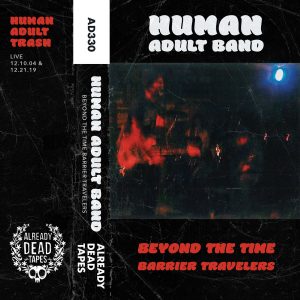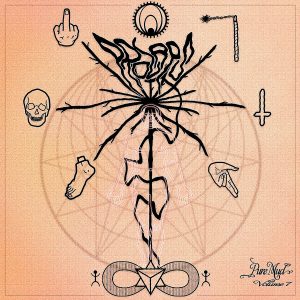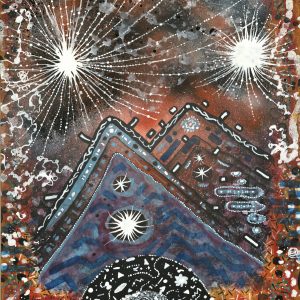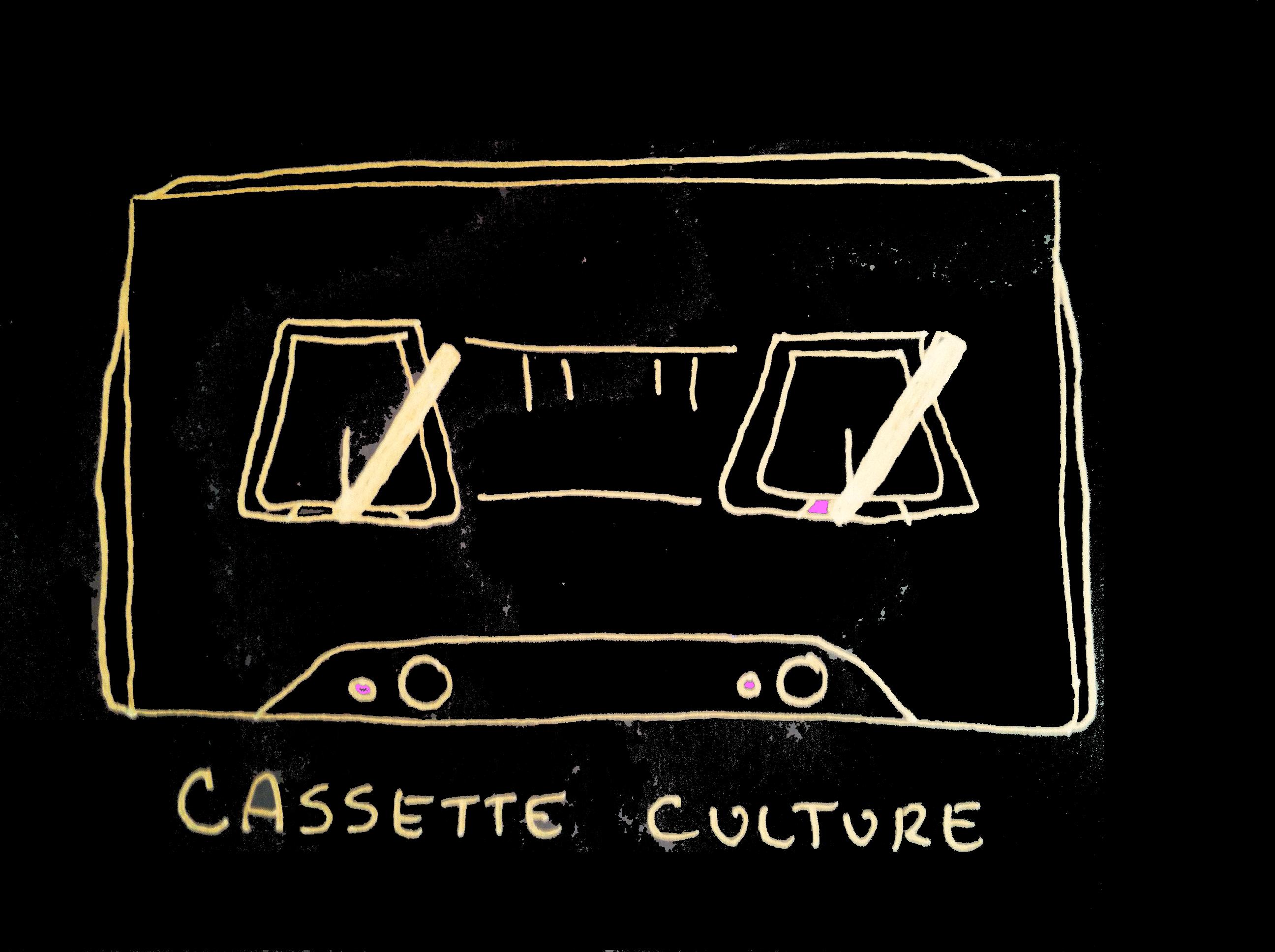Cassette Culture is a monthly column dedicated to exploring the various artists that inhabit the expansive cassette market. Drawing from bands and labels around the world, this column will attempt to highlight some of the best artists and albums from this global community.

Human Adult Band
Beyond the Time Barrier Travelers
(Already Dead Tapes and Records)
New Jersey collective Human Adult Band has been thriving for almost two decades, offering chaotic explorations into the deeper chasms of no wave and noise rock. Often impressionistic and conforming to no known genre boundaries, their work is a whirlwind of frenzied soundscapes, aided by copious amounts of art rock ambition, post rock obscurity and lo-fi tenacity. Their songs erupt and recede in an impulsive orchestra of craggy textures and ragged tonalities. Spontaneity and instinct are given free rein to influence the direction of the music; the band is the conduit through which these compulsions operate.
Their latest offering, Beyond the Time Barrier Travelers, is a devastating brew of rhythmic riots and oddly scorched melodies. The improvisational nature of the material and its penchant for droning movements should keep it at a relative distance emotionally, but there’s something inherently compelling about the way the band eschews any sense of traditional composition. At times, you feel like a fly on the wall in some low-lit basement venue as the band tears apart their instruments and attempts to damage the hearing of anyone within earshot. But this lack of regard for convention is what makes these cacophonous rituals so hypnotic and overcome with a ravenous energy.

Prolaps
Pure Mud Volume 7
(Hausu Mountain)
Brooklyn duo Prolaps are interested in creating and sustaining a joyous chaos. Home to Bonnie Baxter, vocalist and producer for Kill Alters, and Matt Stephenson, architect of Machine Girl, the band wades into the profane trenches of industrial noise and mutated dancefloor rhythms without care for consequence or even practicality. Their work hinges on inevitable collapse, driven by chopped up textures and nucleonic fragmentation. It’s loud, aberrant and completely refuses to relinquish control of your attention for days. Bruised and bloodied electronic tones blur into a series of overwhelming rave-ups to fashion a sense-deafening cacophony.
With their latest release, Pure Mud Volume 7, Prolaps are further exploring the wild expanse of their nightmarish creativities. Stephenson batters the listener with a synthetic percussive barrage while Baxter’s feral vocals are able to guide these sounds through the curvature of some futuristic punk landscape: think Mad Max-meets-Tron. Alternating between brief eruptive breakbeats and longer narrative-driven torrents of sound, Pure Mud Volume 7 is abrasive and aggressive, but it’s also euphoric in an unsettling way. You slowly begin to embrace the harsh qualities of the music, absorbing its mania into your bloodstream before finally succumbing to its hazardous charms.

Curanderos
Raven’s Head
(\\NULL ZØNE//)
Bringing together members of Bardo Pond and Kohoutek, experimental psych outfit Curanderos envisions the end of the world as a sludgy descent into free-form psychedelia. At least, that’s what you might expect from spending any time in the company of their music, which roars and clomps and rambles around as if it were an LSD trip made tangible. Guitars notes are bent and elongated while drums patter around without appreciable concern for their surroundings. Jazz-like in its construction, the music is enthralling in all its rickety, smeared glory. The band stretches these psych sounds to their limits, opting to hold back just enough so that they don’t snap apart in their hands.
Over the course of their new 3-track release Raven’s Head, they deliver a dense and otherworldly collage of wobbly rhythms, tumble-down rock impulses and loosely-knotted melodies – all recorded live to a 1974 Technics tape recorder. The broken guitar rapture of John and Michael Gibbons is equaled by the mesmeric percussion of Scott Verrastro. These songs billow and evolve, growing in force and aperture until they consume your entire world. And though the band traffics in sounds that aren’t always very approachable, they’re still able to impart a fierce emotional connectivity within the sinews and muscles of these ecstatic outbursts.

José Orozco Mora
Formas Aparentes
(Constellation Tatsu)
Hailing from Chapala, Mexico, Jose Orozco Mora is a musician and composer who has previously recorded under the moniker of Camedor, while also playing synths in the live iteration of experimental outfit Lorelle Meets the Obsolete. Through the music released under his own name, Mora strolls the length of various New Age tonalities, slightly warped electronica, and transcendent minimalism, sounds not unlike the work of Terry Reid or La Monte Young. There’s a hypnotic feel to the music, an immersive quality that draws you into Mora’s strange world before your defenses can even be raised, not that you’re likely to care given the unusually gorgeous appearance of this rhythmic landscape.
Recently, Mora shared a new collection of songs entitled Formas Aparentes, wherein he continues to explore this gauzy intersection of ambient minimalism and droning hypnotism. Punctuated by pulsing organ lines and understated synths, the songs are breathtaking in their apparent simplicity. You settle into these tracks, slowly and comfortably embracing the persuasive gravity they impart. But beneath this languid superficiality is a complicated mass of emotional substance and melodic nuance, a heaviness to be shouldered and shared. There’s a recurrent nature to these songs, with each one adding some elemental property as the cycle is repeated, renewed, and passed to the next generation.

